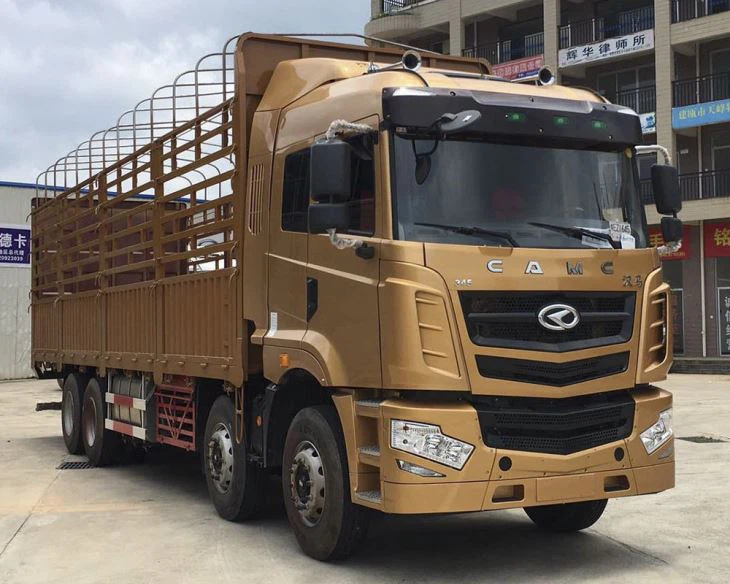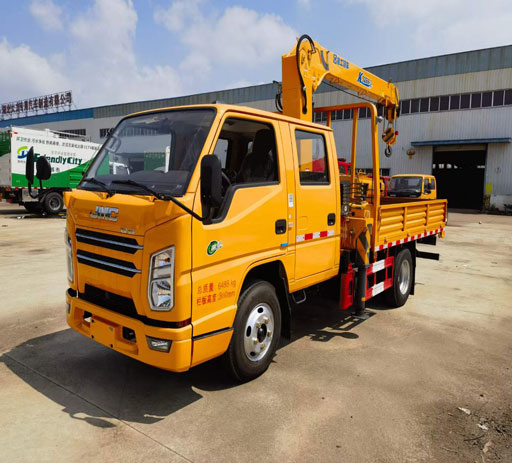Mini Trash Truck: The Smart Solution for Efficient Waste Management

In an ever-evolving world focused on sustainability and efficient waste management, mini trash trucks are leading the way as versatile and practical alternatives to larger waste collection vehicles. These compact trucks play a crucial role in urban environments, residential areas, and commercial establishments by enhancing waste management practices and improving accessibility. In this article, we delve deep into the realm of mini trash trucks, exploring their features, benefits, operational considerations, and much more.
What is a Mini Trash Truck?
A mini trash truck is a smaller version of a traditional waste collection vehicle, designed for efficient collection and transportation of waste materials. Unlike larger trucks that may be cumbersome in narrow streets or crowded areas, mini trash trucks offer enhanced maneuverability while still maintaining a considerable payload capacity. They are often equipped with advanced technology and features to improve productivity and reduce operational costs.
Key Features of Mini Trash Trucks
1. Compact Design
Mini trash trucks are designed to navigate tight spaces and congested urban environments. Their smaller size allows them to access areas that larger trucks cannot, making them ideal for residential neighborhoods, parks, and commercial zones.
2. Reduced Environmental Impact
Many mini trash trucks are built with eco-friendly technologies, including electric or hybrid engines, reducing carbon emissions and contributing to cleaner air in urban areas.
3. High Payload Capacity
Despite their compact size, mini trash trucks can typically carry up to 5-10 tons of waste, depending on the specific model. This makes them effective for various waste collection tasks without sacrificing efficiency.
4. Customization Options
These vehicles can be tailored with various attachments and configurations, including recycling bins, compactors, and lifting mechanisms, allowing them to handle different types of waste materials.
5. User-Friendly Technology
Most mini trash trucks come equipped with modern technology, such as GPS navigation, route optimization software, and onboard diagnostics. These features help streamline operations and improve overall efficiency.
Benefits of Using Mini Trash Trucks
1. Cost Effective
Mini trash trucks generally require less fuel and maintenance compared to their larger counterparts. This leads to significant savings in operational costs for municipalities and waste management companies.
2. Increased Accessibility
Their size makes mini trash trucks ideal for accessing hard-to-reach areas, ensuring complete waste collection in neighborhoods that may otherwise be overlooked.
3. Enhanced Mobility
Mini trash trucks can easily navigate through heavy traffic and narrow lanes, improving collection efficiency and reducing the time spent on routes.
4. Improved Community Relations
By providing better waste collection services and access, municipalities can build stronger relationships with residents who value cleanliness and environmental responsibility.
Types of Mini Trash Trucks

1. Electric Mini Trash Trucks
Electric mini trash trucks are powered by batteries, reducing greenhouse gas emissions and operating costs. They are becoming increasingly popular in urban settings due to their quiet operation and sustainability.
2. Diesel Mini Trash Trucks
While less eco-friendly than electric models, diesel mini trash trucks offer robust performance and greater range. They are often favored for heavier and more demanding waste collection tasks.
3. Hybrid Models
Hybrid mini trash trucks combine both electric and diesel engines, providing the flexibility of both power sources. They can run on electric power for short routes and switch to diesel for longer ones.
Operational Considerations
1. Maintenance Requirements
Regular maintenance is crucial for extending the life of mini trash trucks. This includes routine inspections, oil changes, and checking brake and tire conditions.
2. Training for Operators
Proper training for drivers and operators is essential to ensure safe and effective operation. This includes techniques for navigating tight spaces and understanding the vehicle’s technology.
3. Waste Sorting and Management
Efficient waste sorting and management practices are vital for optimizing mini trash truck operations. This includes separating recyclables and organic waste to enhance sustainability.
4. Route Planning
Implementing route optimization software can significantly reduce fuel consumption and improve collection efficiency, enabling operators to make informed decisions based on real-time data.
Examples of Popular Mini Trash Trucks
1. Isuzu NPR
The Isuzu NPR is a versatile mini trash truck known for its reliability and compact design. It offers various configurations suitable for different waste types and works effectively in urban areas.
2. Ford Transit
The Ford Transit is often customized for waste collection with ample cargo space and advanced technology, making it a popular choice among waste management companies.
3. Hino 268
Hino’s medium-duty trucks are also adapted for mini trash collection, featuring fuel-efficient engines and a solid frame designed for heavy loads.
Choosing the Right Mini Trash Truck
1. Assess Your Needs
When selecting a mini trash truck, consider the type and volume of waste to be collected as well as the terrain and accessibility of collection locations.
2. Budget Considerations
Budget constraints will play a significant role in your choice. Balance the purchase price with long-term operational costs, including maintenance and fuel consumption.
3. Evaluate Manufacturer Support
Choose manufacturers that provide strong customer support, warranties, and service options to mitigate potential issues during the vehicle’s operational life.
Future Trends in Mini Trash Truck Technology
1. Autonomous Vehicles
The integration of autonomous technology is paving the way for innovative waste collection solutions. Self-driving mini trash trucks can reduce labor costs and improve safety on the roads.
2. Increased Electric Adoption
As cities strive to reduce their carbon footprints, the trend toward electric mini trash trucks will likely accelerate. Future models may offer even greater range and improved battery efficiency.
3. Advanced Recycling Systems
Innovations in recycling technology will lead to mini trash trucks that can automatically sort waste into distinct categories before transport, enhancing recycling efforts.
FAQs About Mini Trash Trucks
1. What types of waste can mini trash trucks collect?

Mini trash trucks can collect a variety of waste types, including residential garbage, yard waste, recyclables, and construction debris, depending on the truck’s configuration.
2. Are mini trash trucks suitable for urban areas?
Yes, their compact size and maneuverability make mini trash trucks ideal for urban environments, allowing them to navigate narrow streets and crowded areas effectively.
3. How can I reduce operational costs for a mini trash truck?
Reducing operational costs can be achieved through regular maintenance, efficient route planning, driver training, and choosing fuel-efficient models.
4. What is the average lifespan of a mini trash truck?
The average lifespan of a mini trash truck is typically around 10-15 years, depending on factors such as usage, maintenance, and operating conditions.
5. Can mini trash trucks be customized?
Yes, many manufacturers offer customization options for mini trash trucks, allowing various attachments and configurations to suit specific waste collection needs.
6. How do electric mini trash trucks perform compared to diesel models?

Electric mini trash trucks often have lower operational costs due to reduced fuel and maintenance expenses but may have limited range compared to diesel models. Performance can vary based on model and application.
Conclusion
Mini trash trucks are a valuable asset in modern waste management efforts, providing efficient, cost-effective, and environmentally friendly solutions for collecting waste in various environments. Their growing popularity underscores the importance of innovation in the industry and serves as a reminder of the critical role that effective waste management plays in maintaining clean and sustainable communities.
